
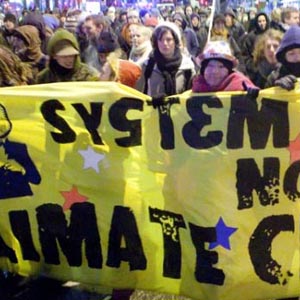
What does 'System Change' mean?
Given the climate crisis, a lot of well-meaning people are demanding ‘system change’.
But they often don’t say what they mean.
It’s certainly a radical-sounding phrase, but that doesn’t tell you much.
We want global ‘system change’ too, and this page will try to explain exactly what we mean by that.
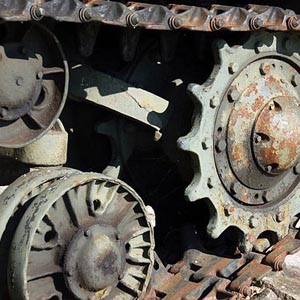
What is the system?
It’s capitalism, a globalised system where real productive wealth is in private or state hands.
Competing businesses produce goods which are pushed out onto the market in the hope of selling them at a profit.
Those profits are then reinvested to create further profits in an ever-repeating cycle.
This cycle, with its scant regard for externalities, is what is driving global warming and species extinction.
“For most of my adult life, I’ve railed against “corporate capitalism”, “consumer capitalism” and “crony capitalism”. It took me a long time to see that the problem is not the adjective, but the noun”
– George Monbiot – The Problem is Capitalism
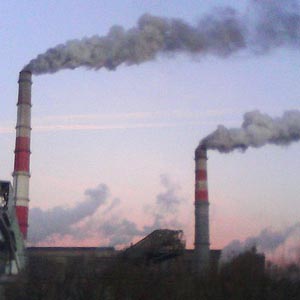
Can we 'green' this system?
To make capitalism green would mean contradicting its own internal law of motion – the need to grow.
In order to grow, and not go under, capitalists have to do two things.
First, they have to make a profit by exploiting workers, essentially by not paying them the full value of what they do.
Second, they must reinvest part of that profit in future production.
On and on without stopping, and regardless of the consequences.
The end result is what we’re seeing, a global tragedy of the commons.
We desperately need to manage our planet and its resources responsibly, but this is simply incompatible with how capitalism works.
“Green investing ‘is definitely not going to work’, says ex-BlackRock executive. His conclusion: the climate crisis can never be solved by today’s free markets. “It’s not because they are evil, it’s because the system is built to extract profits.”
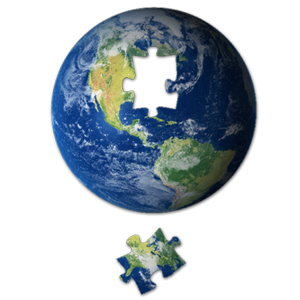
Why a piecemeal approach won't work
Many environmentalists, like XR and the Greens, tend to look at the climate crisis in isolation.
So proposals are offered which leave other factors out of account.
Like the Green New Deal, which is based on an unrealistic view of economics.
Or the argument for personal lifestyle changes like veganism, which are peripheral to the real problem.
Or the idea that there are just too many people, which overlooks important factors and countervailing trends.
For decades, people have treated all kinds of social ills, like war, hunger and poverty, in this same single-issue way, but they never get any better.
The only solution is a holistic one: capitalism is the real problem, and must be abolished.
“If market solutions naturally greened the world, we wouldn’t be where we are. Clearly there’s been a market failure.” Kwasi Kwarteng, UK business secretary

Can governments solve climate change?
Governments only exist to administer capitalism, a global system that exploits the 99% and rewards a tiny class of voracious business owners for plundering the planet.
COP26 has shown, once again, that they’re not going to do anything that threatens capitalism, even if capitalism threatens our very survival.
Global warming has been recognised for the last 50 years at least, and governments have not acted.
It’s time we stopped begging leaders to save us, and started creating the alternative.
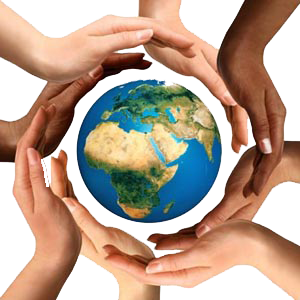
What's the alternative?
The alternative is post-scarcity common ownership, also known as socialism, communism and the resource-based economy.
It has nothing to do with soviet-style dictatorships, which were never socialist to begin with.
It has everything to do with abolishing scarcity and making everything free.
Capitalism’s greatest success is that it has made scarcity unnecessary – it continues to perpetuate scarcity only to keep prices and profits high.
With modern technology and know-how, we can sustainably produce what people need in order to live comfortable lives.
We do this by turning the world into a giant voluntary cooperative, where there is no private or state ownership.
Everything is shared, so there are no markets, no money, no production for profit, the main things ruining the planet.

How to run a fragile planet
Mainstream capitalist economics is based on the lie that scarcity is inevitable because our wants are infinite.
In fact, we have rational needs, like food, clothing, housing, etc. that are largely unvarying and predictable over time.
So while the casino economics of competitive capitalism creates frenzied booms and slumps, gluts and shortages, cooperative production for use could be ‘steady-state‘, using consumption figures as a guide.
Extensive storage and warehouse buffering would replace fuel-guzzling Just-in-Time delivery systems.
The emphasis would be on high-quality production, not cheap rubbish designed to break, and sustainability will be a key production factor, instead of reckless pollution and waste covered in greenwash.

What's next?
We are just as alarmed by the waste and destruction of the environment as you are, but the ‘cures’ on offer miss the target completely.
Catchy slogans and media stunts aren’t enough, because the voluntary society we need must have the active, informed consent of a majority of workers around the world.
We know this seems like a big challenge, but it’s the only way to guarantee a world that’s fit for us to live in, and it needs you to make it happen.
You can contact us at spgb@worldsocialism.org or get a free 3-month sub to our journal. Or apply to join right now.